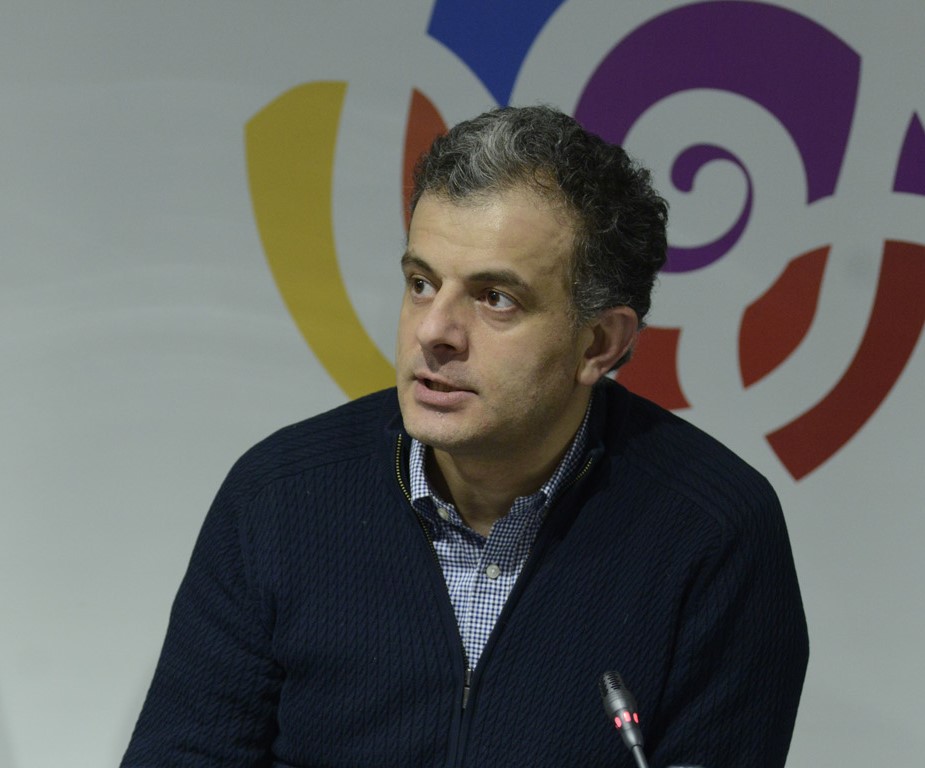 By DAVID AMIRYAN
By DAVID AMIRYAN
YEREVAN/BERLIN, 17. FEB, 17:53
The 2020 war in Nagorno-Karabakh (NK) between Armenia and Azerbaijan that left thousands dead did not put an end to the longest conflict in region.
Active hostilities have largely stopped, given the presence of Russian peacekeepers in NK, following the 9 November 2020 trilateral statement brokered by Moscow.
Three meetings between Armenia’s prime minister Nikol Pashinyan and Azerbaijan’s president Ilham Aliyev, two mediated by the EU, have produced only modest results․
However, the situation remains far from peaceful. We continue to witness numerous localized incidents, in addition to larger instances of armed clashes, such as the ones we saw on 16 November 2021 and 12 January 2022.
The 44-day war significantly altered the geopolitics of the South Caucasus.
First, Turkey’s active role in the conflict and support it gave to Azerbaijan, including through recruiting Syrian mercenaries, significantly increased its influence in the region.
Second, the institutional framework for settling the NK conflict – the OSCE Minsk Group – has been undermined. Emboldened by his victory, Azerbaijan’s president Ilham Aliyev has been publicly stating that the conflict is over, refusing to engage further with the Minsk Group.
This begs the question what will happen to the Armenian population in NK once the Russian peacekeeping mission is over in less than four years. Given the brutalities documented during the war, the state-promoted Armenophobia in Azerbaijan as well as post-war incidents that target the Armenian population, there is a real threat of ethnic cleansing of Armenians in NK.
Another important consequence of the war is the change in the de-facto borders between Armenia and Azerbaijan.
The contact line between the armed forces has become so close that in some locations they are a few hundred meters away from each other. This situation has had a major impact on the rights and livelihoods of local communities. In several instances, near-border residents were taken captive, their cultivated fields were set to fire, and their cattle were stolen.
The recent three meetings between Armenia’s prime minister Nikol Pashinyan and Azerbaijan’s president Ilham Aliyev, two of which were mediated by the EU, have produced only modest results.
One outcome of these meetings is that there is a direct line between the defense ministers of two countries for preventing border skirmishes.
The two countries also agreed to take steps towards unblocking railway connections. One of the most important issues remains the border demarcation. Russia has proposed creating a committee, which it would lead, however there is no progress in sight.
The explosive situation in Ukraine can potentially have devastating consequences for the Caucasus, including a new conflict. Despite personal friendship between presidents Vladimir Putin and Erdogan, Russia has been increasingly annoyed by Turkey due to its position on Crimea and for providing armed drones to Ukraine.
There have also been some recent tensions between Azerbaijan and Russia, particularly over Russia’s peacekeeping mission in NK. Azerbaijan and Turkey will be tempted to resort to use of force again, especially as their earlier actions did not generate adequate condemnation.
In this context, a much more engaged EU is necessary, in particular around the following three areas.
Minsk redux
First, it is critical to pressure Azerbaijan to move away from an aggressive militaristic approach and embrace negotiations under the auspices of the OSCE Minsk Group around the status of Nagorno-Karabakh.
There should be an unambiguous message that the use of force is not an option and will be met with adequate consequences. The status quo has changed dramatically and the two sides can no longer be treated as equal sides to the conflict: Armenia is being subjected to aggression.
Second, the EU could push for and support a monitoring mission along the border. EU’s civilian CSDP mission is a relevant instrument that the EU has used in similar contexts and can go a long way to stabilise the situation on the ground.
Such a mission could enable the creation of a demilitarised zone so that conducive environment is created for the border demarcation process. In parallel, the EU should push for a border delimitation and demarcation process as soon as possible, ideally under OSCE.
Last but not least, decisive measures should be taken for the return of Armenian prisoners of war (POWs) still detained in Azerbaijan and raise the problem of state-promoted hate speech.
While there have been many statements calling for Azerbaijan to return POWs, Azerbaijan still holds dozens of them in violation of international humanitarian law.
Earlier this month, Azerbaijan announced plans to erase Armenian traces, such as old writings from churches, which was met with some outcry. The situation warrants more drastic measures, including application of targeted individual sanctions as well as aid conditionality, particularly in the face of the recently approved €2bn aid package by the EU.
The EU has the tools to change the situation – it now needs the will.
 AUTHOR BIO
AUTHOR BIO
David Amiryan is the deputy director for programmes at Open Society Foundations-Armenia.
DISCLAIMER
The views expressed in this opinion piece are the author’s, not those of EUobserver.
Original Source of the op-ed https://euobserver.com/opinion/154379
